Faculty Job: Myths & Realities – an interview with Yasin Dagdas
About you
Hi All,
If you are more of a 140-character type like me, the summary of the interview below is “There is nothing magical about being a faculty in academia. Even a very ordinary person can make it, provided that he is surrounded by great colleagues and tries hard enough.” The real question is “Is this really what you want?”.
Describe your journey from student to newly appointed faculty
I spent most of my undergrad years playing football, rather than attending lectures or doing coursework. Eventually, I managed to get a degree in Molecular Biology and Genetics at Middle East Technical University in Turkey. As I was not a typical student, most of the labs were not interested in having me. But luckily there was a professor who took pride in working with “odd” kids and gave me an opportunity. That’s when I started doing real experiments and realizing that I actually like science. For an MSc degree, I studied an F-box protein that seemed to be involved in powdery mildew infection in barley and published a small paper out of it.
When it took 2 months to get some primers, I realized I need to go abroad to do the papers that I enjoyed reading (Don’t forget, this is 2009, Turkey is in a much better shape now.). I sent 100s of emails to PIs that are working on plant-microbe interactions. I interviewed with Pierre De Wit, Regine Kahmann, and Nick Talbot and managed to get offers from all of them. Then, I joined Nick Talbot’s lab at University of Exeter with a Halpin Scholarship.
Moving to the UK in July 2009 was a bit of a culture shock. It was a major effort to tell the bus driver which stop I was getting off, they ate beans for breakfast (!), and even though it was summer when we moved it rained almost every day. But the lab was fun! It was very international, everyone was helping each other, and we were working on an important and exciting research topic. On top, I had this amazing supervisor who was always positive, giving us lots of freedom, and really excited about the science I was trying to do. I was literally craving for our 1-1 meetings. We had all kinds of discussions on how to design experiments, crazy ideas and manuscript plans. Nick also used to tell me behind the scene stories of major scientific discoveries; similar to the ones in “The Eighth Day of Creation”. I loved them and dreamed about having one of those moments. When I saw the septin ring in the appressorium of rice blast fungus on a Saturday evening, I knew I was the only one in the world who knew that. Ok, ok, it is nowhere near Francis Crick’s realization that they have discovered the triplet code, but hey, I am no F. Crick either. I spent almost four years in Nick’s lab at Exeter and managed to publish a few papers.
Once, I started publishing my papers, I started thinking what do to next. The Sainsbury Lab was the dream place. TSL was established on the idea of hiring the best of the best, and providing them all the opportunities to thrive. I knew I was not TSL material, so I was not sure if any group leader would be interested in hiring me. It also meant, I really had to move out of my comfort zone and learn a whole bunch of new techniques and skills. Then, I attended The Fungal Genetics Conference in Asilomar. During one of the poster sessions, I had a chance to talk to Sophien Kamoun. I shyly approached him and started discussing about the host-microbe arms races, effectors, how microbes remodel endomembrane trafficking etc. I get easily excited when talking to science, but this was something else. It was as if I took a performance enhancing drug. I did not sleep the whole night, thinking about the topics we discussed, and how wonderful it would be to join the Kamounity. That morning, I knew I had to try my chances to join Sophien’s lab. Luckily, Sophien had a lot of resources at the time and offered me a position in his lab.
TSL is one of those unique places where magic happens all the time. The level of collegiality, the depth of discussions and the joy of doing science was/is just unbelievable. When I joined the lab, Kamounity had a bunch of amazing postdocs (aka Lazy Fat Cats), who were as sharp as it gets and living with their science (I am sure quite a few read papers while having a bath!). The coffee breaks were like the harshest journal clubs ever. They did not accept any result without scrutinizing it to the finest detail, and always had a good laugh. From each of them, you could learn different skills and approaches. For example, I briefly overlapped with Tolga who could see things very different than others and always comes up with amazing ideas. He also introduced me to autophagy, which continues to shape my career.
While enjoying science, thanks to the great mentorship of Sophien – I am sure the gluten allergy was not the only source of his headaches – I also started realizing your science is as good as your controls. I saw the beauty of “Publishing houses of brick, not mansions of straw”. I also learnt a lot about how to combine enjoying science while being strategic. “Science is the art of the Soluble”, and one has to know where to invest his energy, which makes all the difference.
After 3,5 years, I have applied to several places and ended up getting a position at The Gregor Mendel Institute at the Vienna Biocenter.
What is the major focus of you research team?
Currently, our lab focuses on understanding the molecular basis of selective autophagy. We are trying to understand how cells employ selective autophagy as a quality control system to stay in tune with their environment. Despite massive interest and advances in cellular quality control mechanisms in humans, we know very little in plants. We hope our studies will contribute to the filling of this gap and help us understand what makes plants so sturdy in contrast to man.
We are using Arabidopsis, Marchantia and hopefully in near future rice in a comparative manner. As Sydney Branner said, we are fully aware that we need a proper toolbox to be able to ask good questions. So we are establishing new tools to play with, for both imaging and biophysical assays. Finally, our recent studies have revealed that plants are untapped resources for discovering novel selective autophagy players. When we identify these types of conserved yet unknown pathways, we also do experiments in human cell lines together with colleagues at the Vienna Biocenter Ubiquitin Club. We have a few other stories where we cross the bridge across different kingdoms, so stay tuned.
Can you tell us a little bit about your current team?
One of the goals of the lab is to make papers where each claim is supported by multiple lines of evidence. Yes, it slows us down, but we think this will be instrumental in producing papers that will stand the test of the time. To achieve this, I tried to build a team that are happy to work together and have different expertise. So far it worked quite well and we are having lots of fun, while learning new skills and approaches from each other.
We also have a very international team. The current team has 12 different nationalities. It is always comforting to have good company, when you are a stranger in a strange land.
Finally, we actively collaborate with many groups working on autophagy, cellular quality control, ER stress, and plant cell biology. This makes science fun and more importantly reproducible.
About your job hunt
How long did it take you from the beginning of searching faculty jobs to get one?
It took me around a year (2016) to put together the job application, interviews and eventually accepting an offer.
During your job hunt, what did you learn about yourself or about the process of finding an academic job?
My daughter’s teacher told her “Life is not fair! Get used to it.” No matter how good you are, in any application process (or paper submission!), the decision making process is not transparent and may not be fair. In this case, we have two options: go cry somewhere, blame the panels and reviewers, and give up; or try to learn from each failure and keep knocking the door until someone answers.
Thanks to Sophien reassuring me that I would have a job until something works out, I kept knocking. My research statement, the job talks, the interviews, the interactions that I had with the faculty did improve after each interview. More importantly, my ideas on what I would like to do matured once they were scrutinized by other colleagues.
So, yes, the job hunt is tough. But if you have a supportive mentor and you have the humility to ask for help from your colleagues, things will work out and you will have a much stronger start once you get the job.
Based on your experiences and the feedback you got during the job search, what do you think are key skills and accomplishments that a successful candidate must demonstrate?
This is very straightforward to answer and I feel sad when I see colleagues applying for jobs without ticking these key boxes:
-You need to demonstrate that you are productive, i.e. you have to publish your paper. Without a paper, you won’t have the credibility to propose a research statement. Don’t find excuses for this: your project may have been risky and did not work out etc etc. won’t help you. Get that paper(s) done!
-What is your niche? Have a clear answer to this question in your proposal. This means a research question/topic that is broad enough and exciting. It is also not just the immediate follow up of your postdoc paper. As my great friend Youssef Belkhadir says you need to take off your postdoc shoes and get into the PI shoe, where you could feed projects to a team, not just yourself.
-Why are you the best person to fill the gap that you outlined above. Be realistic about it, don’t promise the world. Beware of your resources and limitations and address them. If you go somewhere and tell your panel you will make the place the world leader in this and that topic, you will destroy your credibility. You are not a car salesman, you are a rational scientist, who does her/his homework.
Which published paper was the most influential for your career or getting the faculty job?
As I was proposing to work on autophagy, the eLife paper that we published must have been critical. That paper showed that I know what I am talking about.
Advice for job applicants
Beyond your research and publications, how did you prepare for the academic job hunt during your postdoc?
The papers and your network puts you in the shortlist. It is absolutely essential to have papers, but you also need to keep building your network. Every interaction you have with your colleagues during a conference or visit is important. Academic world is a small one and you will cross paths. It is a cliché but the first impressions matter.
Once you are in that shortlist, what you have accumulated over the years as a scientist makes all the difference. Hiring committees are made up of academics who are looking for a colleague who is nice to be around, knowledgeable, can interact with them and proposes a feasible and exciting program. Very few places are keen to take massive risks; so as widely said in personal development books “Successful people do take risks, but also do everything to minimize them”.
How did you prepare for the actual job hunt? How did you identify potential opportunities, prepare your application materials, and prepare for interviews?
The hardest part was to decide what I wanted to work on. I worked on plant-microbe interactions during my PhD and postdoc training and I knew that field and community well. I also had an opportunity to shift to autophagy, as there was an exciting niche and I knew I had a few ideas worth pursuing. After long discussions with Sophien, we decided autophagy was worth a shot.
Once I settled on that, I thought really hard together with colleagues around me to put together the research statement. If you are not a genius, I know I am not, it is really important to get help. So, I asked help from various people, whether it is reading my proposal for language or scientific solidity. This also helped me to picture how I was going to establish my team, the priorities, potential grant applications, contingency plans, competitions, collaborations etc etc.
I also worked hard to do my homework for each department. I didn’t send a default package, but tailored it for each position. Obviously, I did not change my research proposal entirely, but modified the parts on collaborations, changed the emphasis a bit if the department is more translational versus basic science savvy etc.
About you as a faculty member
What were the initial challenges to starting your own lab?
The biggest challenge was to decide on where to focus our energy. How to set priorities, how to execute our projects efficiently? How to set a lab culture that is built on work hard play hard?
I knew we needed to work hard, but no one will work hard if they don’t think they have a cool project. At the beginning everything takes three times more than you planned for. Getting those first cool results as soon as possible for each project was quite stressful. If you are an impatient person like me that is really depressing. From where I am now, I think these never go away, you just find better coping mechanisms. What were the initial challenges to starting your own lab?
What qualities do you look for when recruiting for your lab?
Ambition and team-play.
When we discuss science I need to see the light in her/his eyes. That is the most important thing. Techniques, skills etc. can be learnt, especially in a place like Vienna Biocenter, where we can get help on almost any technique.
I also need team players, as we are a small team, so we can’t afford loners.
How do you manage “work-life balance” as a faculty?
Honestly, I don’t like this question or the whole drama that we create around this question. It pushes away so many smart and talented people away from academia. I am getting it regularly from first year students, who have not even started their careers.
How many jobs are there where the most productive time of the day is while you are having shower or having a drink with a colleague in a pub? How many of us have the luxury to decide what to work on, without much interference from others? How many people are out there who are not bound by a 9 to 5 work schedule? And more than anything, how many jobs are out there that can give the same level of satisfaction that you get by making a scientific discovery or helping someone in the process?
I am not trying to sugarcoat anything. Yes, academia is hard, the career progression is built on insecurity, and we do sacrifice many things. As it takes time to do good science, an academic career means getting used to delayed gratification. But we also have so many positive aspects that are hard to beat. I just try hard to focus on those positives and don’t let the negatives pull me down.
Eventually, it all boils down to if you really want academia as a career or not. Once you settle on that, let’s focus on the positives and don’t waste our limited energy on things that we can’t control. Don’t forget Life is too short…
If prospective students and postdocs want to reach you, where can they contact you and read about your work?
I tried to keep it very brief here. If anyone wants to talk more about job hunt, life in academia or want to share her/his exciting science with me, I would be super happy to zoom or once we can buy the coffee and cakes in a Viennese Café. The easiest way to reach me is via twitter: @PlantoPhagy


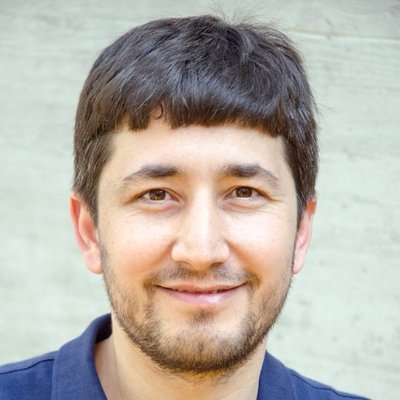
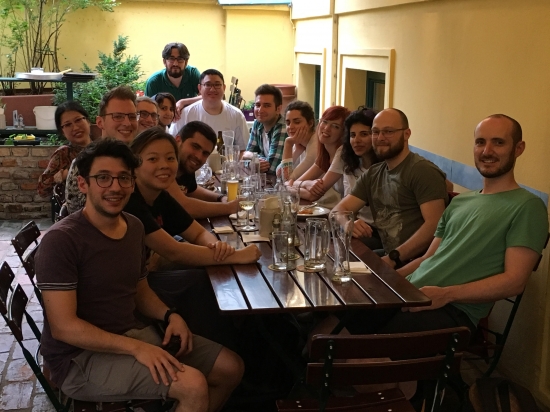

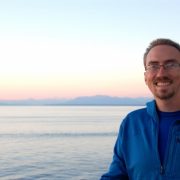
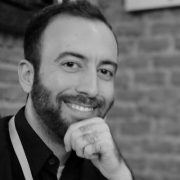
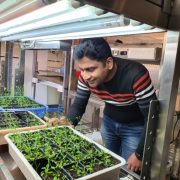
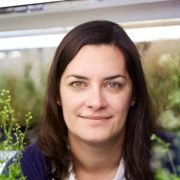
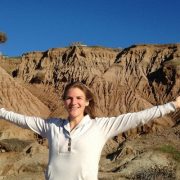
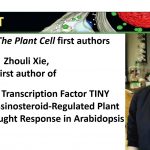
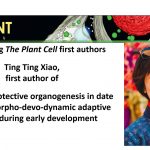
Leave a Reply
Want to join the discussion?Feel free to contribute!